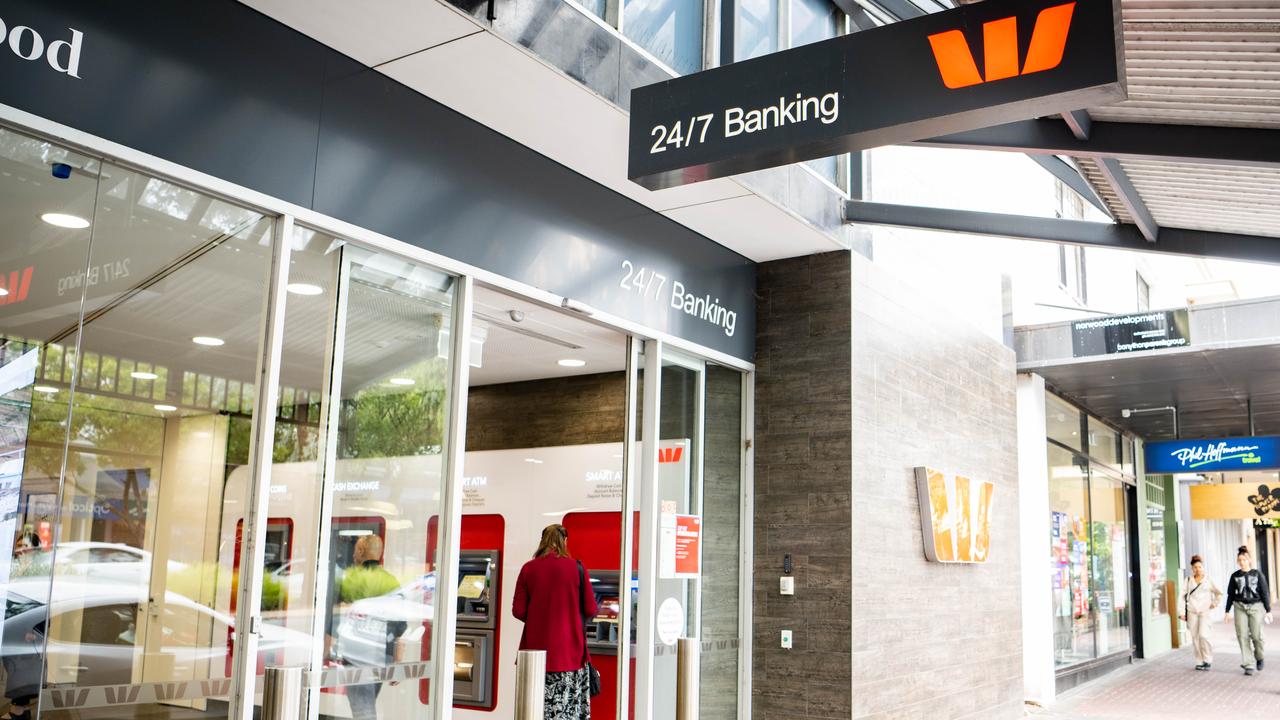Super funds now control 30pc of Aussie banks
Flows from superannuation net buying have heavily influenced share performance and arguably pushed valuations to extremes, says Morgan Stanley.
Australia’s almighty superannuation funds now control almost a third of the country’s banks as the retirement sector becomes an increasingly dominant force in the market.
Analysis by Morgan Stanley shows that super funds increased bank sector ownership to 29.7 per cent in the 12 months to September compared to 27.9 per cent in the prior period.
Flows from superannuation net buying have heavily influenced sector performance and arguably pushed sector valuation to extremes, according to the broker. Net purchasing by Superannuation has been elevated for much of this calendar year, while offshore investors and more recently households have been net sellers.
The country’s banks have been among the best performing stocks on the local bourse with shares in both Commonwealth Bank and Westpac up by more than 40 per cent, while National Australia Bank has lifted over 20 per cent in this period and 11 per cent for ANZ amid it closing a deal to acquire Suncorp’s banking division.
Morgan Stanley is wary that the buy up of banks by the country’s super funds could spark regulatory intervention given that commentary from the Reserve Bank and the Council of Financial Regulators have flagged potential financial stability risks from superfund ownership of bank debt and equity, and the face that APRA has flagged a review in 2025.
“Given the valuation stretch in the bank sector any fatigue in flow from what has been the dominant driver this year could be a trigger for multiple de-rate back to more normal valuation levels,” the broker said.
“Net purchasing by superannuation has been elevated for much of this calendar year, while offshore investors and more recently households have been net sellers.”
The RBA said in its Financial Stability Review published in September the superannuation sector’s significant growth, rising connectedness with banks and increasing footprint in financial markets creates new risks, including the ability to amplify shocks.
“Superannuation funds have the potential to amplify shocks in the financial system. This could occur if the investment actions of superannuation funds were to become more correlated or concentrated in times of generalised market stress – for example, in response to members’ correlated reaction to a shock,” the RBA said.
It noted that this occurred during the onset of the pandemic in Australia when superannuation funds increased their sale of bank debt securities back to issuing banks, adding to bank funding pressures – which in turn increased funding costs across the financial system.
“The sector’s growth will require superannuation funds to continue to strengthen their liquidity risk management practices,” the RBA said.
Major super funds have used their ever-growing stakes in the country’s largest listed companies to curb unruly boards and influence policies on emission targets, executive pay, gender diversity and other key issues.
The Australian Retirement Trust, which was formed following the merger of Sunsuper and QSuper, previously committed to pressuring 88 companies to slash their carbon footprint, setting a new “net zero” road map to cut emissions in its portfolio of equities, infrastructure and real estate investments by 43 per cent by 2030.



